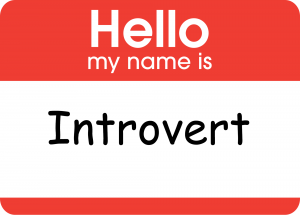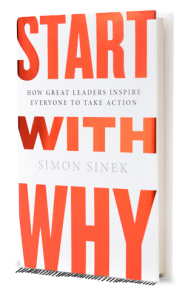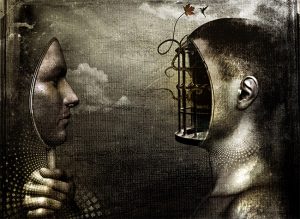 Here are some of my thoughts in regards to parenting and children.
Here are some of my thoughts in regards to parenting and children.
Many of you may not know but one of my off jobs is officiating basketball. I’ve played basketball my whole life and this seemed like a great way to make some extra money while I can still participate in a game I really enjoy. There is a lot of nuance to basketball and being an official has been enlightening in regards to hearing coaches and fans complain about the game. A typical refain is that officials don’t call the game fairly. I always find this a very unusual accusation as if I really care about who wins or loses a high school basketball game. After reflecting on it some more lately I’ve come to the conclusion we have been told for so long that everything should be equal and fair and when anything seems to be offset we scream at the top of our lungs. THATS UNFAIR!
As many people will tell you, life isn’t fair. My job as an official is to keep things fair in regards to the rules of basketball but is it fair that my opponent is 6’5″ and I’m only 5’10”. Probably not. Life being unfair is a reality many of us deal with and something we intuitively know about life but we still struggle to try and make it equal and that struggle is a good thing but I think that struggle is part of what builds our character.
We have two different realities at battle as parents. One, we want to make things as fair and as equal as we can so that they have every opportunity to succeed. Two, we know that life is unfair and they will encounter this unfairness in life frequently. So our question as parents is how do we handle this juxtoposition?
Here is my advice to you as parents. It’s okay when things aren’t fair or equal. In fact, these are great opportunities for personal growth. We can teach our children how to grow, react, and build great character when faced with these obstacles. When your son or daughter is playing sports and it seems like the officiating is unfair, focus on how your child deals with this. Officials make mistakes, coaches make mistakes and your child will make mistakes. It’s how you grow from these situations that help build understanding, empathy with others and the ability to raise children who want to help those who have less or who are in an unfair position rise above the fray. In fact, I would say this. Stop trying to make life equal or fair for your child and instead try these things. Recognize when things are unfair and help them to constructively address those issues. One other suggestion I have is look at how you approach unfairness or inequality in your own life because your actions are much more likely teaching your child how to engage the inequities of life. If you tend to yell or pout or complain it’s likely that is what your child is learning to do. If you engage the world more constructively your child will learn that directly from you.
Hope that helps, take it or leave it or leave some comments and let me know what you think.


 I was recently listening to a leadership podcast while I was on a run and was struck by the conversation the guest and host were having about an experience the guest had at a restaurant. At this restaurant he asked for an fried egg to be added to the burger he ordered but the manager wouldn’t oblige. The manager had reasons for not providing the egg. They were running a special where lots of eggs were required but the guest couldn’t believe this $.33 egg was going to be a deal that kept him from spending $500.00 a month as a regular at this establishment. In fact, he went next door to Whole Foods who made him a specialty pizza with a fried egg just the way he wanted it to describe the kind of business we should be running as opposed to his experience at the restaurant. His point was very valid and his reasoning was sound. A $.33 egg should be something they could have provided and for a business it seems like a no brainer however, the solution or reasoning behind why this happened seemed to be a little simplistic to me.
I was recently listening to a leadership podcast while I was on a run and was struck by the conversation the guest and host were having about an experience the guest had at a restaurant. At this restaurant he asked for an fried egg to be added to the burger he ordered but the manager wouldn’t oblige. The manager had reasons for not providing the egg. They were running a special where lots of eggs were required but the guest couldn’t believe this $.33 egg was going to be a deal that kept him from spending $500.00 a month as a regular at this establishment. In fact, he went next door to Whole Foods who made him a specialty pizza with a fried egg just the way he wanted it to describe the kind of business we should be running as opposed to his experience at the restaurant. His point was very valid and his reasoning was sound. A $.33 egg should be something they could have provided and for a business it seems like a no brainer however, the solution or reasoning behind why this happened seemed to be a little simplistic to me. There has been increased discussion about introverted people in our world. In fact there is a great book titled
There has been increased discussion about introverted people in our world. In fact there is a great book titled  I am doing my absolute best not to comment on our current political situation but something I think has to be said. No not about a current person but it seems to me, and I am certainly not connected in any way to any of the candidates, that there is no one in their lives that speaks truth to them. It would seem by the behavior of our candidates that most people that surround them simply tell them that everything they want is good and true and that everything they’ve done is good and if it isn’t they have and excuse as to why it was someone else’s fault. This seems to be the state of the politics in the United States. Now here are some areas where I think we could improve as people.
I am doing my absolute best not to comment on our current political situation but something I think has to be said. No not about a current person but it seems to me, and I am certainly not connected in any way to any of the candidates, that there is no one in their lives that speaks truth to them. It would seem by the behavior of our candidates that most people that surround them simply tell them that everything they want is good and true and that everything they’ve done is good and if it isn’t they have and excuse as to why it was someone else’s fault. This seems to be the state of the politics in the United States. Now here are some areas where I think we could improve as people. John C. Maxwell posted something the other day that stated “life is 10% what happens to us and 90% how we react to it.” I’m not sure that most people are able to live this way. In fact, I believe most people live life the complete opposite and are moved and swayed by what happens. Our emotion gets the best of us and we allow what happens to us over take us. We make up stories in our heads that take the best of us and turn us worse. How many of us still have the words of a parent still haunting our decisions today. How many of us are driven to succeed because of a wrong done to us by someone. We think that this helps us do better but in reality it makes us a slave to the hurt in our lives and keeps us from being free. This is one of the hard lessons in life that I am currently learning. You are actually much more in charge of your reactions than you think you are. In fact, in the equation, the only part you don’t control is what happens to you. Don’t make that 10% any greater than it already is and don’t allow it to control you.
John C. Maxwell posted something the other day that stated “life is 10% what happens to us and 90% how we react to it.” I’m not sure that most people are able to live this way. In fact, I believe most people live life the complete opposite and are moved and swayed by what happens. Our emotion gets the best of us and we allow what happens to us over take us. We make up stories in our heads that take the best of us and turn us worse. How many of us still have the words of a parent still haunting our decisions today. How many of us are driven to succeed because of a wrong done to us by someone. We think that this helps us do better but in reality it makes us a slave to the hurt in our lives and keeps us from being free. This is one of the hard lessons in life that I am currently learning. You are actually much more in charge of your reactions than you think you are. In fact, in the equation, the only part you don’t control is what happens to you. Don’t make that 10% any greater than it already is and don’t allow it to control you. If you’re a leadership or self-improvement junkie you’ve likely heard the name Simon Sinek whose written a few good books and done at least one Ted talk around this idea of why. His Ted Talk and one of his book describes this idea of Why. You need to understand why it is you do what you do. You should work to understand the why in your life, your business, and everything you do. So I thought I would let you know why it is I coach people.
If you’re a leadership or self-improvement junkie you’ve likely heard the name Simon Sinek whose written a few good books and done at least one Ted talk around this idea of why. His Ted Talk and one of his book describes this idea of Why. You need to understand why it is you do what you do. You should work to understand the why in your life, your business, and everything you do. So I thought I would let you know why it is I coach people.
 I know its only fall but whenever fall hits I start to think about ski season and while it’s been quite a few years since I’ve gone skiing I can remember when I was a really young skier I really wanted to learn how to ski the moguls. There was something special for me as I watched people ski the bumps and I wanted to be a part of the group of people who could really ski those well. So I spent a lot of my time watching people do it and trying to duplicate what they did. I am a person who can typically pick up athletic endeavors rather quickly so I was very surprised when I was really struggling to learn this trick of skiing the bumps.
I know its only fall but whenever fall hits I start to think about ski season and while it’s been quite a few years since I’ve gone skiing I can remember when I was a really young skier I really wanted to learn how to ski the moguls. There was something special for me as I watched people ski the bumps and I wanted to be a part of the group of people who could really ski those well. So I spent a lot of my time watching people do it and trying to duplicate what they did. I am a person who can typically pick up athletic endeavors rather quickly so I was very surprised when I was really struggling to learn this trick of skiing the bumps. More and more I am seeing that one of the reasons we aren’t growing as people is that we aren’t connected to one another. We have relationships that are somewhat shallow and disconnected. Yes we know the basics of people’s lives and we invest enough to make us feel like we are connected but very rarely do I see many deep relationships and to some extent that is a good thing. You should really be able to count the people that are really invested in you on one hand. That is the people what are supposed to say hard things to you when it’s needed. Those who you can go to with the hardest things and those that you know will have your back. Investing in those people is one of the keys to real growth. In order to truly change and grow you need to have a community around you, a community that really cares about you, your joy and your want the best for you as much as you do. Are you being authentic and real with people in that way?
More and more I am seeing that one of the reasons we aren’t growing as people is that we aren’t connected to one another. We have relationships that are somewhat shallow and disconnected. Yes we know the basics of people’s lives and we invest enough to make us feel like we are connected but very rarely do I see many deep relationships and to some extent that is a good thing. You should really be able to count the people that are really invested in you on one hand. That is the people what are supposed to say hard things to you when it’s needed. Those who you can go to with the hardest things and those that you know will have your back. Investing in those people is one of the keys to real growth. In order to truly change and grow you need to have a community around you, a community that really cares about you, your joy and your want the best for you as much as you do. Are you being authentic and real with people in that way? I’ve found that in my interactions with people the amount of self-awareness I have can help me to communicate more effectively with others. For example, when I’m working I tend to be very short and succinct in my email communication. I tend to get to the point because I have a billion things to get done. That is me being self-aware of what I’m doing at work and it’s a good thing to understand that because that approach may not work well for everyone I work with. In fact, my tone and succinct approach may be seen as uncaring or aloof. It would be easy for me to try and explain what I’m trying to do as I’m pretty self-aware of what’s going on in my head but it also helps me to understand how it might be understood. One of the most important keys to being able to interact with other people is to have a degree of self-awareness about who you are and how you act. This process of self-awareness takes a great deal of reflection, asking other people questions about how they see you and what your personality is prone to do. There is a uniqueness to you but understanding your tendencies, your approach, your personality are such and important part of interacting that I would urge you to take some steps to understand your personality. If you are interested on having me help you do so I can do so with a small fee so let me know if that interests you.
I’ve found that in my interactions with people the amount of self-awareness I have can help me to communicate more effectively with others. For example, when I’m working I tend to be very short and succinct in my email communication. I tend to get to the point because I have a billion things to get done. That is me being self-aware of what I’m doing at work and it’s a good thing to understand that because that approach may not work well for everyone I work with. In fact, my tone and succinct approach may be seen as uncaring or aloof. It would be easy for me to try and explain what I’m trying to do as I’m pretty self-aware of what’s going on in my head but it also helps me to understand how it might be understood. One of the most important keys to being able to interact with other people is to have a degree of self-awareness about who you are and how you act. This process of self-awareness takes a great deal of reflection, asking other people questions about how they see you and what your personality is prone to do. There is a uniqueness to you but understanding your tendencies, your approach, your personality are such and important part of interacting that I would urge you to take some steps to understand your personality. If you are interested on having me help you do so I can do so with a small fee so let me know if that interests you.